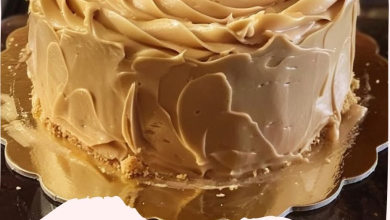WHAT MY GRANDMA BOUGHT BEFORE SHE PASSED AWAY!


It came late on a Wednesday night—a quiet buzz from my phone, a single message in our family group chat. Just one line, but one I’ll never forget.
“Does anyone have a little to spare? I need $60 for something important,” my grandmother wrote.
No emojis. No explanation. Just that.
The chat fell silent. No one replied—my mom, my aunts, my cousins. One by one, the little “seen” icons appeared. And then… nothing.
I stared at the screen, waiting for someone else to answer. But no one did.
Two days later, something kept nagging at me. I finally sent her a quick message: “Hey Grandma, everything okay?”
She never responded.
That night, she passed away in her sleep.
When my mom called the next morning, her voice cracked before she even said the words. I didn’t cry right away. I just sat there, numb, scrolling through our chat, staring at that last unanswered message.
Later that day, I drove to her apartment to help go through her things. She’d always lived simply—a small one-bedroom on the edge of town, filled with crocheted blankets, old photographs, and the soft scent of lavender that lingered in the air.
On the kitchen table was a small box, neatly wrapped with a thin blue ribbon. Next to it lay a folded note with my name on it.
“Thank you for remembering me.”
I froze.
It took a moment before I could even breathe. Then I sat down and opened the box. Inside were two leather-bound sketchbooks and a set of graphite pencils—the exact ones I’d admired in a craft shop months ago but never bought.
Her note, written in her careful, looping script, said:
“You always believed in my stories. I wanted you to have the tools to tell your own.”
That’s when the tears came.
I don’t know how long I sat there, crying. But when I finally gathered myself, it all started to make sense. The $60 she’d asked for—it wasn’t for bills or groceries. It was for this.
Her final purchase was a gift for me.
I thought back to all the times we sat at that same table, her sharing stories she never finished, poems she never published, sketches she never showed anyone. When I was little, she’d read them to me before bed—stories about courage, kindness, and finding light in ordinary places.
She used to laugh and say, “Someday, you’ll write better ones.”
I always brushed it off. But sitting there with her gift in my hands, I finally understood—she meant it. She believed in me long before I ever believed in myself.
At her funeral, everyone brought flowers. I brought the box. I’d retied the ribbon and placed it beside her photo when it was my turn to speak.
“I’m not here to talk about loss,” I said. “I’m here to talk about love—the quiet kind. The kind that doesn’t ask for attention or thanks.”
I told them about her message. About the silence that followed. About how, even in her final days, she was thinking not of herself, but of me.
There wasn’t a dry eye in the room.
After the service, relatives came up to me, guilt in their voices—“I meant to reply,” or “I didn’t think it was urgent.” But Grandma was always like that—never wanting to trouble anyone, even when she needed help.
Her generation had that kind of quiet strength. They gave without asking, endured without complaint, and loved without needing recognition.
That night, I placed her sketchbooks on my desk. On the inside cover of the first one, written in faded pencil, were her words:
“Stories never die, sweetheart. They just wait for someone brave enough to tell them.”
So I made her a promise.
I vowed to finish the book she never got to write—the one she’d talked about for years but never completed.
Every night after work, I wrote. At first, just fragments—lines inspired by her old stories, sketches of her favorite places. But slowly, it began to grow into something more.
Months passed. Writing became my therapy. The ache in my chest softened into gratitude.
I started to feel her presence everywhere—in the scent of paper, the morning light on my desk, the faint whistle of the kettle that always preceded her voice saying, “Tea’s ready, darling.”
And one evening, as I turned the final page of her notebook, I realized something. The story I’d been writing wasn’t just hers—it was mine too.
It was about loss, yes—but also about resilience. About how love doesn’t end when someone dies. It lingers in the small things—in unfinished dreams, in quiet acts, in the faith someone once had in you.
A year later, I printed the finished manuscript and placed the first copy on her grave. I read her note one last time before setting it down:
“You always believed in my stories. I wanted you to have the tools to tell your own.”
And I whispered, “I did, Grandma. Because of you.”
Her story didn’t end with her death—it simply passed to me.
Now, when people ask what inspired me to write, I tell them the truth. It wasn’t ambition or fame. It was a $60 gift from a woman who had little to give but love—and gave it anyway.
The world may remember her as an ordinary woman who lived a quiet life. But to me, she’s proof that the smallest gestures can echo longer than the grandest words.
So if you ever get a message like hers—don’t ignore it. Reply. Reach out. You never know what someone’s final act of kindness might be.
Because sometimes, the smallest things—a few dollars, a few words, a simple act—can keep another person’s story alive long after we’re gone.
And if you’re lucky, someone might one day hold your gift in their hands and feel what I did—the warmth of a love that never truly left.




